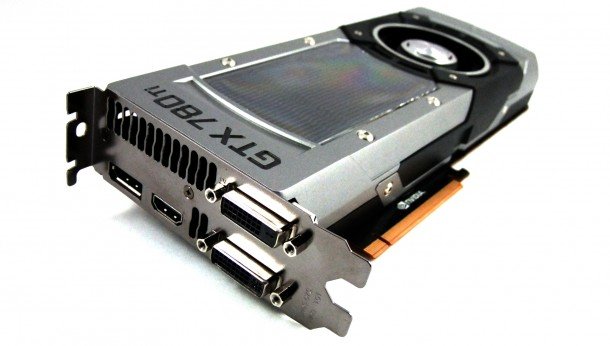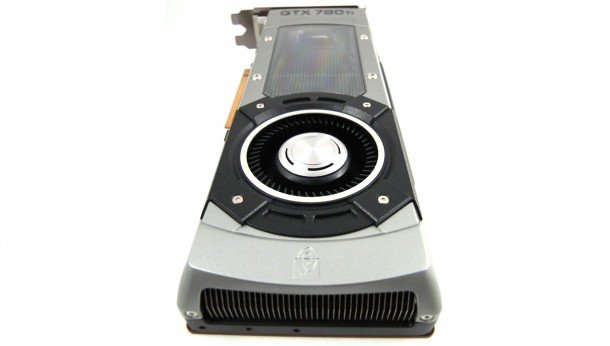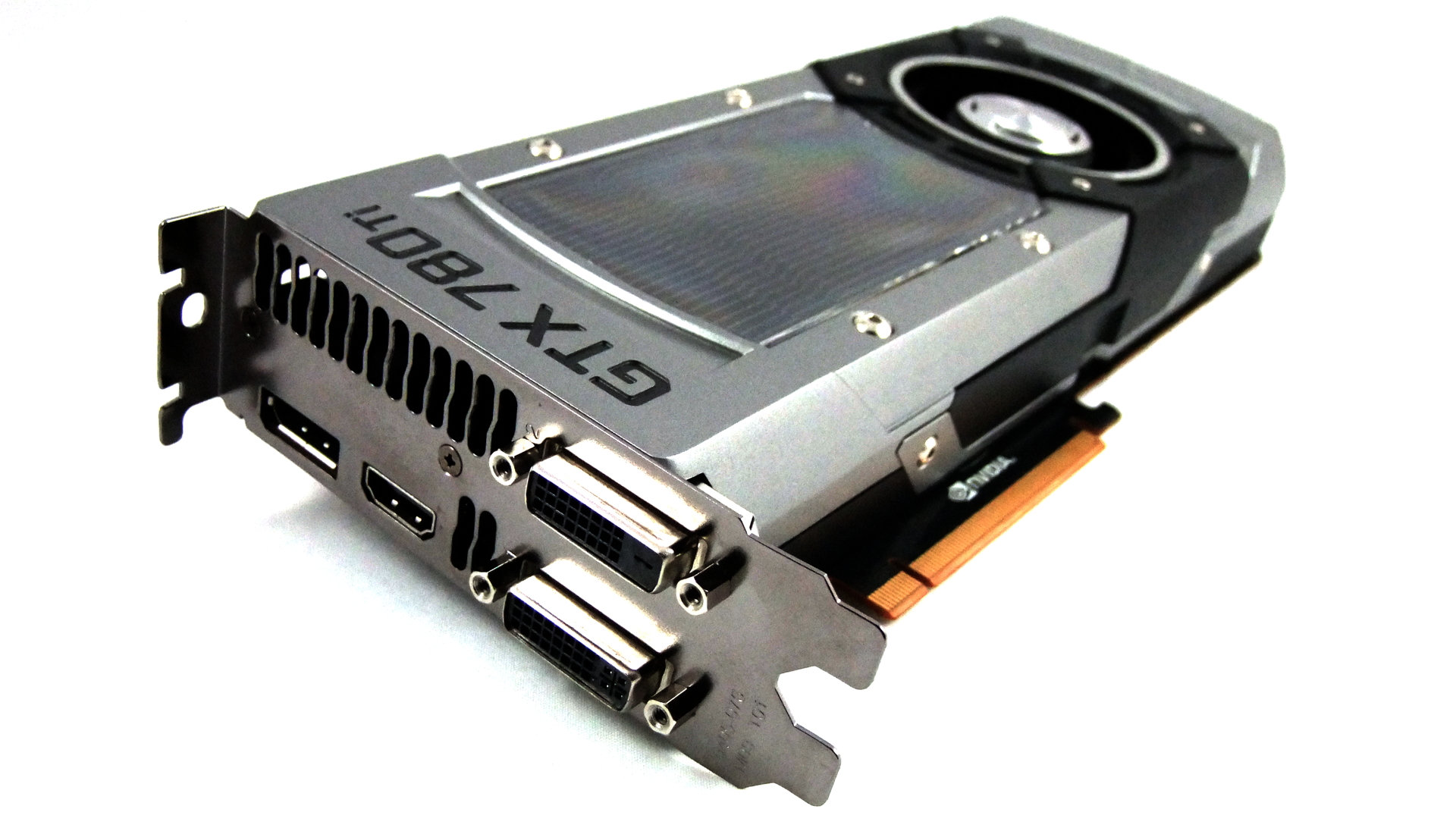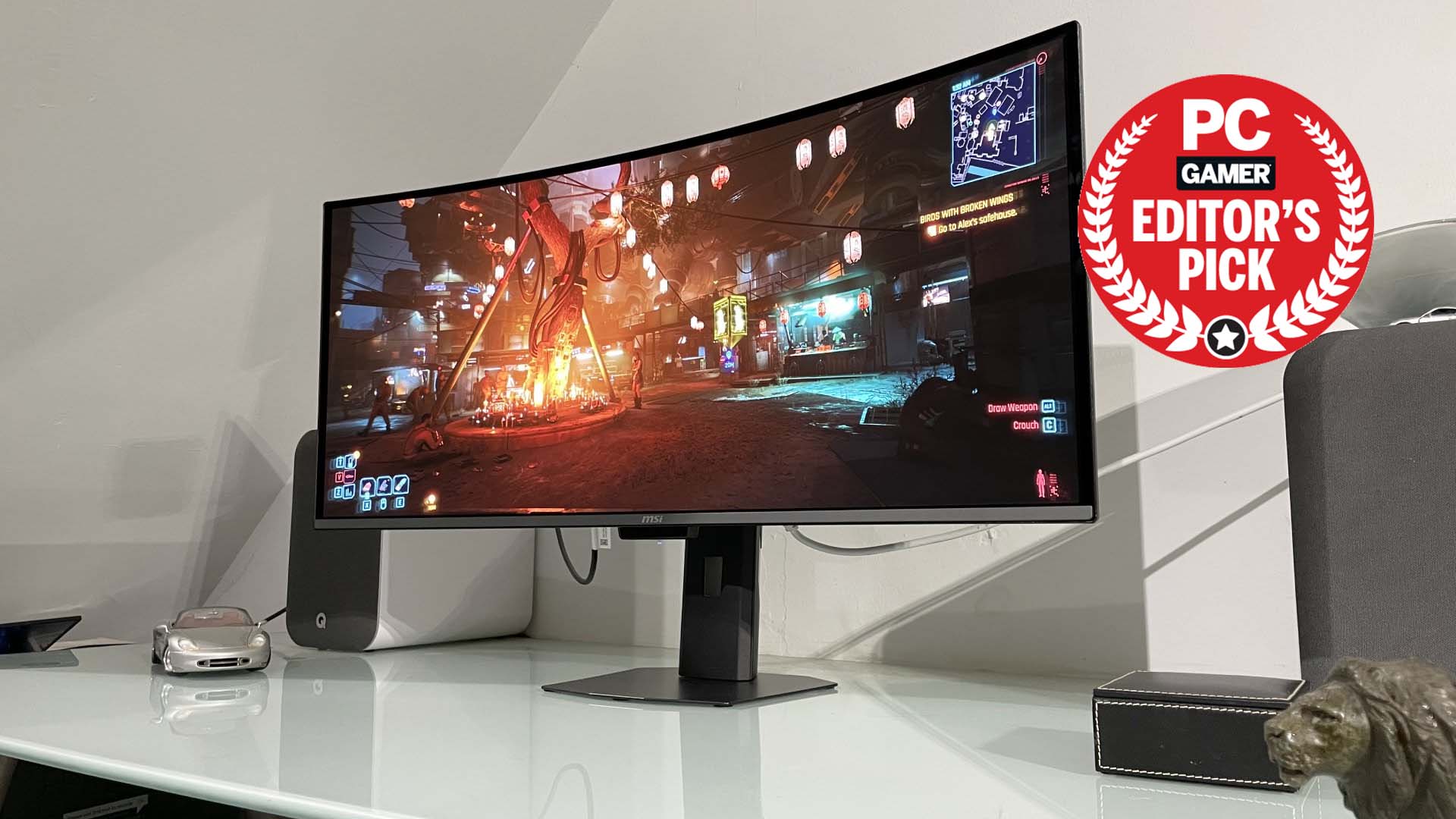Our Verdict
If youve got a lot of cash burning a hole in your pocket, and if you can find one, the GTX 780 Ti will be the fastest graphics card youve ever had. But you'll need to overclock to justify the expense.
PC Gamer's got your back
Well, it's been a busy month for graphics card releases and we're only seven days into November, but then we always knew Nvidia would be waiting for AMD to release it's top end cards before issuing their own response, and here it is: the Nvidia GeForce GTX 780 Ti.
And as you would expect, it's now the fastest graphics card on the planet. But we're not just talking about taking the single-GPU crown either, the GTX 780 Ti can actually go much faster than the Radeon HD 7990, let alone either the GTX Titan or Radeon R9 290X.
Nvidia have had to bring out their biggest guns for this battle. The original GTX Titan was a bit of shock and awe in order to topple AMD's Radeon HD 7970 GHz edition from the top of the benchmark tree, the GTX 780 Ti goes even further. Not even Nvidia's pro graphics card range has used the GPU behemoth inside this card.
Perhaps AMD ought to take this as a bit of a compliment though. Nvidia hasn't left anything in the tank here, this card represents every bit of power they've managed to pull out of the Kepler architecture. Like the GTX 780 and the GTX Titan before it, the GTX 780 Ti is using the GK 110 GPU Nvidia have previously reserved for their professional Tesla graphics card range. It's a massive, powerful GPU at 533mm2 with over seven billion transistors - the GK 104 used in the original GTX 680 by comparison is relatively svelte at under 300mm2 with half the transistor count.
The Titan used the same chip as the top Tesla K20X card, with 2,688 CUDA cores making it one of the quickest single GPU cards around at the time. That still wasn't, however, the full-fat GK 110 chip. Both Titan and K20X sport fourteen of the Kepler architecture's streaming microprocessor (SMX) modules - each with 192 CUDA cores - to make up that 2,688 core count. The full chip though comes out of the fabs with fifteen SMX and some 2,880 cores. Because of the difficulty getting fully functional yields out of the silicon wafers at the top spec the decision was taken to go forward with fourteen. This allowed for chips without the full fifteen functional SMX modules to still make the grade.
But now because of the serious competition from AMD's Hawaii GPU, Nvidia have had to bring out the big guns. Because the production process is now far more mature than it was a year or so ago I expect the yields on the top chips are much better than they were originally - they're going to have to be otherwise Nvidia might be taking a bit of a hit bringing the GTX 780 Ti out at this price.
Keep up to date with the most important stories and the best deals, as picked by the PC Gamer team.

Quick chips
What does all that mean for gaming performance then? It means the GTX 780 Ti is faster than AMD's finest, that's what. But not by much, if I'm honest. In the synthetic benchmark of Heaven 4.0 it shows Nvidia's top card has the definitive edge when it comes to raw performance, but in-game - Bioshock Infinite aside - the difference isn't nearly so pronounced.
Indeed, with Company of Heroes 2 even the second-tier Hawaii, the Radeon R9 290, is still faster than this giant of a GPU.
When you think about the fact Nvidia's latest card is over £200 more expensive than the R9 290 suddenly all those CUDA cores don't look so impressive. And when you're only getting a few frames per second on average more than the R9 290X, the extra £100-odd over the top Radeon doesn't look worth the outlay at all.
I was quite prepared to admit that while the GTX 780 Ti was indeed the new fastest GPU in the world it was only by such an insignificant amount as to barely be worth bothering about. A good demonstration of speedy Kepler architecture, but not a card I could recommend anyone buy.
Then I started playing around overclocking it. Boy, does this thing shift when you start playing around with the core and memory clocks. And even at the top settings (some 1,254MHz on the GPU if you're interested) it was still only knocking around 83ºC and with the fans at 67% it only sounded as blowy as the R9 290X itself.
I've never seen any card get so close to hitting 50FPS in Heaven's system-taxing benchmark at 2560x1600, especially not with the minimum frame rate topping 20FPS either. In my experience of basic GPU overclocking, whether DIY or factory-overclocked, most cards will net you an extra 10% performance boost at best. The GTX 780 Ti was boosting gaming frame rates by 16% at the very least, sometimes as high as 23%.
These are important speed bumps when you're gaming at high resolutions, which is where you want to be when you're spending £560 / $700 on a graphics card. If you're plugging this into a 1080p screen only then you're a mad person.

Must-have?
It's still not got the must-have price/performance metrics of the impressive Radeon R9 290 though. That card is still an absolute bargain for the gaming speeds you can get out of it. And while the GTX 780 Ti at its top overclock does pull away, sometimes quite significantly, from the second-tier Radeon it's still tough to argue that the extra performance is really worth the extra couple hundred you've got to spend on the GeForce card.
For some people it will be though. If you want the absolute best, quickest graphics card on the market right now, and one that still wont burn a hole in the side of your chassis, or deafen you at full speed, then Nvidia have got the card for you. At £560 / $700 it is a premium-priced GPU, but when you consider the GTX Titan is still selling for much, much more, it's not actually that bad, value-wise. Fingers crossed Nvidia have sorted out the chip yields for GK 110 chips with the full fifteen SMX modules, because I'm pretty confident they could sell an awful lot of these cards. I guess we'll see what stock levels are like over the next few days.
Benchmarks
DirectX 11 synthetic performance
Heaven 4.0 - Avg. FPS (min): higher is better
GeForce GTX 780 Ti - 40.6 (18.9)
Radeon R9 290X - 33.7 (17.4)
GeForce GTX Titan - 37.0 (18.2)
Radeon R9 290 - 31.2 (16.7)
DirectX 11 gaming performance
Bioshock Infinite - Avg. FPS (min): higher is better
GeForce GTX 780 Ti - 68 (15)
Radeon R9 290X - 57 (16)
GeForce GTX Titan - 60 (11)
Radeon R9 290 - 55 (16)
Company of Heroes 2 - Avg. FPS (min): higher is better
GeForce GTX 780 Ti - 25 (12)
Radeon R9 290X - 29 (15)
GeForce GTX Titan - 25 (12)
Radeon R9 290 - 27 (14)
GRID 2 - Avg. FPS (min): higher is better
GeForce GTX 780 Ti - 86 (69)
Radeon R9 290X - 86 (68)
GeForce GTX Titan - 77 (61)
Radeon R9 290 - 77 (62)
Total War: Rome II - Avg. FPS (min): higher is better
GeForce GTX 780 Ti - 37 (12)
Radeon R9 290X - 36 (13)
GeForce GTX Titan - 33 (12)
Radeon R9 290 - 34 (11)
Metro: Last Light - Avg. FPS (min): higher is better
GeForce GTX 780 Ti - 28 (14)
Radeon R9 290X - 26 (13)
GeForce GTX Titan - 24 (13)
Radeon R9 290 - 25 (13)
Overclocking performance
Heaven 4.0 - Avg. FPS (min): higher is better
GeForce GTX 780 Ti - 49.2 (21.5)
Radeon R9 290X - 36.7 (18.5)
Temperature performance
GPU 100% - Degrees Centigrade: lower is better
GeForce GTX 780 Ti - 83
Radeon R9 290X - 95
GeForce GTX Titan - 80
Radeon R9 290 - 93
Peak platform power performance
GPU 100% - Watts: lower is better
GeForce GTX 780 Ti - 340
Radeon R9 290X - 383
GeForce GTX Titan - 300
Radeon R9 290 - 347
If youve got a lot of cash burning a hole in your pocket, and if you can find one, the GTX 780 Ti will be the fastest graphics card youve ever had. But you'll need to overclock to justify the expense.

Dave has been gaming since the days of Zaxxon and Lady Bug on the Colecovision, and code books for the Commodore Vic 20 (Death Race 2000!). He built his first gaming PC at the tender age of 16, and finally finished bug-fixing the Cyrix-based system around a year later. When he dropped it out of the window. He first started writing for Official PlayStation Magazine and Xbox World many decades ago, then moved onto PC Format full-time, then PC Gamer, TechRadar, and T3 among others. Now he's back, writing about the nightmarish graphics card market, CPUs with more cores than sense, gaming laptops hotter than the sun, and SSDs more capacious than a Cybertruck.


